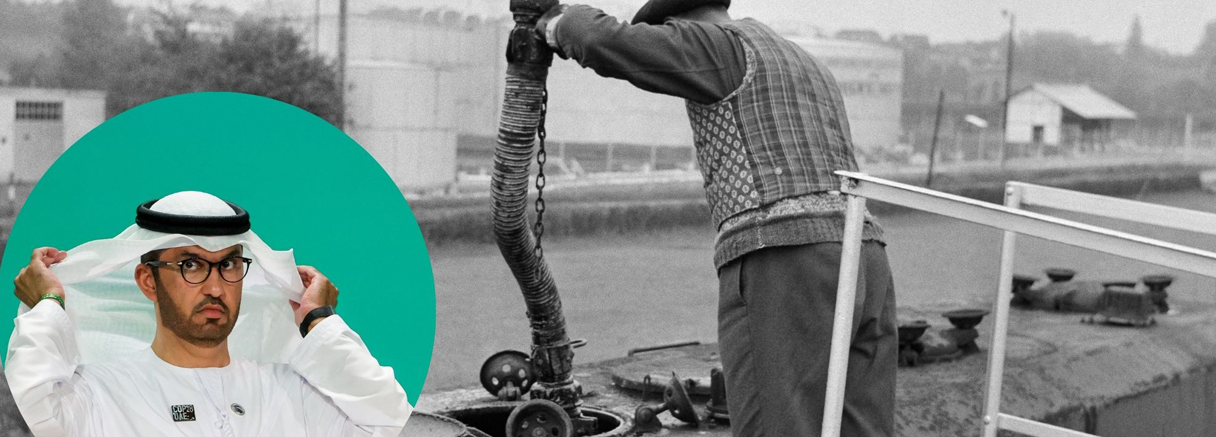The dark ‘fossil fuel cloud’ hanging over Sultan Al Jaber's head

Speaking during an exclusive briefing to which he invited the Nation ahead of the world’s biggest climate summit meet that will be held in Dubai, UAE, from December 7 to December 12, 2023, Dr Al Jaber responded to media reports going round that his team sought to use the international climate talks in Dubai to strike fossil fuel deals for the UAE’s state-owned oil and gas company, The Abu Dhabi National Oil Company, known by its abbreviation, ADNOC.
“These allegations are false, not true, incorrect and not accurate, it is an attempt to undermine the work of the COP28 Presidency. Let me ask you a question, do you think the UAE or myself will need COP or COP presidency to go and establish business deals or commercial relationships?” he posed, and added,
“This country, for the last 50 years, has been built around its ability to build bridges and to create relationships and partnerships. No one in this world has been able to master the ability to create win-win fruitful and productive relationships like these small countries. I promise you, never, ever did I see these talking points that they refer to in my discussions.”
He also stressed that every meeting he had conducted with every government or stakeholder has been purely centred on the COP28 agenda and how to collectively adopt a mind-set that is centred on implementation and action.
“The fact that we embarked on an economic diversification 20 years ago has enabled UAE to be what it is today, from only one source of income to multiple sources with oil and gas only representing 29 per cent of our revenue stream, but what has enabled us to do this? It is (change of) mind-set,” Dr Al Jaber explained, and added,
“It is our ability to extend our reach and arms to everyone around the world, it is our ability to build bridges and the art of partnership that we have been able to master over the years apart from our political will, wisdom of our leadership and the determination of our people,” Dr AL Jaber told his critics.
Responding to Dr Al Jaber’s setiments, Mohamed Adow, the Founder and Director of Power Shift Africa, a Nairobi-based think-tank that mobilises climate action in Africa, had this to say.
“COP28 truly is at a turning point in history. This year is set to be the hottest ever recorded as the impacts of climate change continue to bite around the world, but it’s possible that this meeting, in the heart of the Gulf’s fossil fuel industry, might actually be the place where we turn the tide on the climate crisis,” he said, while highlighting that there are three areas where the world needs to see progress.
“At last year’s summit, few people thought we would get agreement on a Loss and Damage Fund…but developing countries negotiated hard and achieved a historic victory for the climate vulnerable. We now need to build on that progress and see the fund established in Dubai with countries pledging funds so that it can actually start to help people that are in desperate need.”
Mr Adow is of the view that the COP28 Presidency is playing cat and mouse with fossil fuels.
“It is clear that the COP28 Presidency is keen to achieve an early win on Loss and Damage and get this over the line with world leaders expected to announce financial pledges during their speeches at the weekend,” he said,
adding that the COP28 President has tried to dodge questions about a fossil fuel phase out date, instead claiming that countries committing to a voluntary tripling of renewables by 2030 will mean there is no need for a phase out date for dirty energy. He also pointed out that ramping up renewables is vital, but it is clear this is being used as a cover to avoid calling time on the fossil fuel industry.
“We can’t start to heal whilst we carry on drinking poison…at COP26 in Glasgow, rich nations promised to double their adaptation finance, however we’re still waiting.”
Mr Adow also pointed out that while temperatures rise and climate impacts worsen, the funding to help people adapt to these changes has not grown to match the demand.
“It’s a disgrace that many of the people that have done the least to cause the climate crisis are being left to fend for themselves. COP28 can be the place where that changes,” he stressed, pointing out that countries that have caused the most harm and have the greatest wealth, must do more and do it quickly.
“The idea of a just transition is often only used in relation to workers in heavily polluting industries, usually in the
Global North. But we need to broaden this meaning and ensure a just transition for the world,” he concluded.